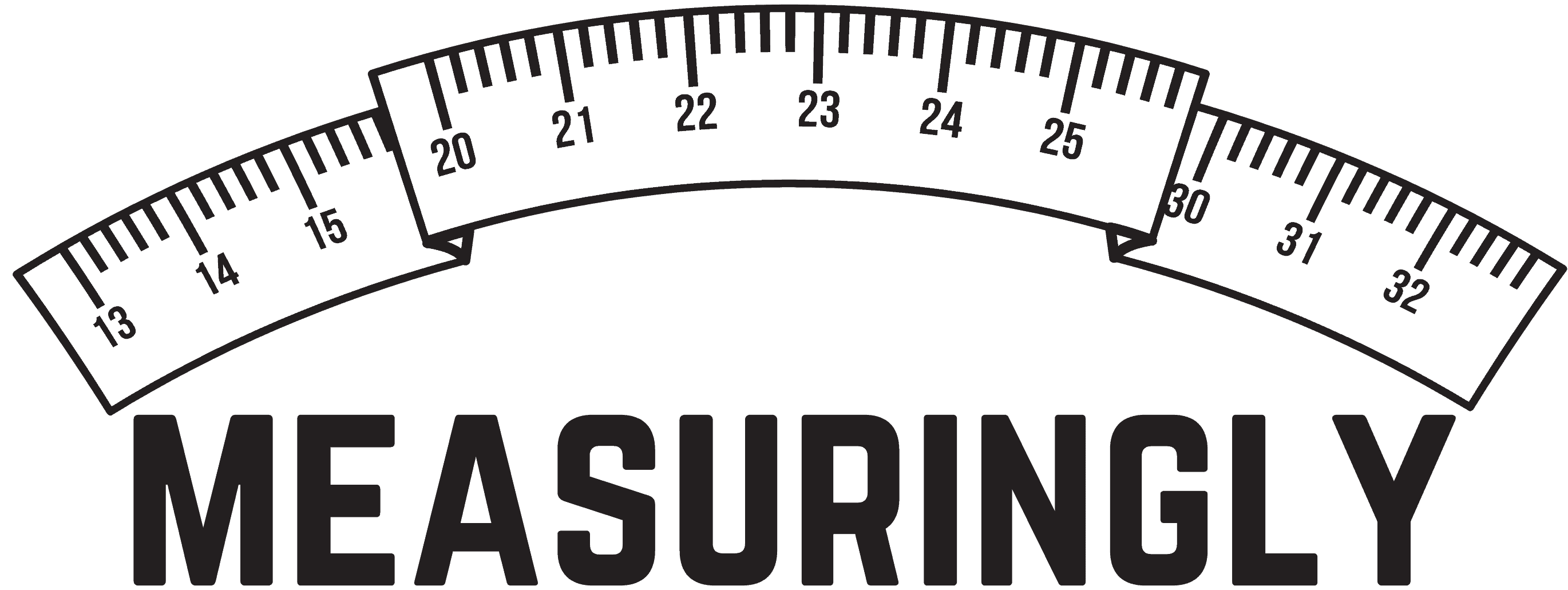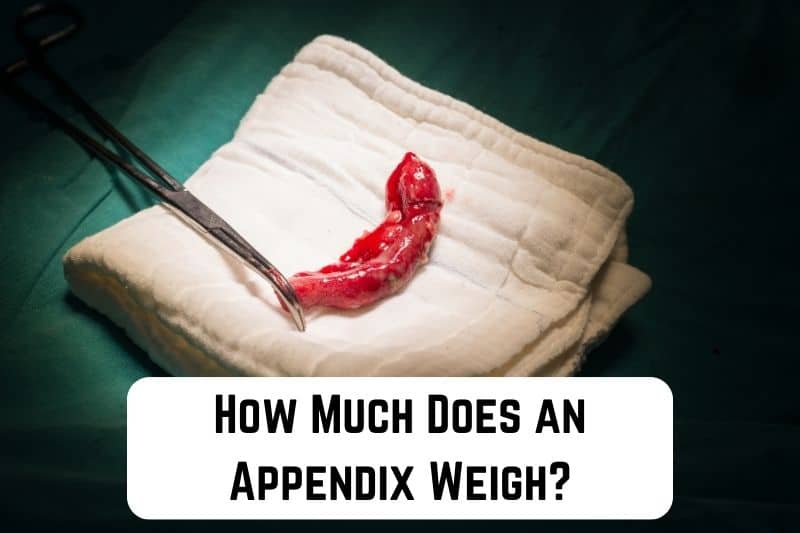Have you ever wondered how much an appendix weighs? The human appendix is a small, tube-like organ that extends from the large intestine, and its weight has been a subject of curiosity for many. In this article, we’ll explore the factors that determine the weight of an appendix and why it’s important to understand this information.
The weight of an appendix can vary depending on factors such as age, diet, and health conditions. Despite its small size, an inflamed appendix can cause significant trouble, leading to appendicitis. Join us as we explore the factors affecting appendix weight and its relevance in medicine.
Read: How Much Does a Pig Weigh? (Pig Types and Their Weights)
On average, an adult appendix measures about 9 cm (3.5 inches) in length. The weight of the appendix ranges between 2 and 18 grams, with an average of 6.43 grams. It’s worth noting that the appendix can vary greatly in size and weight from person to person, and these are just average figures.
Weight of the Appendix
The appendix, a small pouch in the lower right abdomen resembling a finger, remains a mysterious organ with an uncertain function. It’s attached to the lower-right side of the large intestine, also known as the cecum. Studies suggest its potential role in the immune system and gut bacteria maintenance.

The average weight of the human appendix ranges from 2 to 18 grams, with an average of 6.43 grams influenced by factors like age, sex, and health. Inflammation or infection can cause it to swell, altering its weight. Surgical removal may be necessary in certain medical conditions like appendicitis.
Here are some key points to remember about the appendix and its weight:
- The appendix is approximately 2 to 4 inches (5 to 10 cm) long.
- Its weight may be affected by conditions like inflammation or infection, which can cause it to swell and weigh more than usual.
- Various medical conditions related to the appendix, like appendicitis, can sometimes require surgical organ removal to prevent further complications.
Though not essential for survival, if you experience lower right abdominal pain, consult a healthcare professional to rule out appendix-related issues.
Establishing the Importance of the Appendix
You might be wondering why we should care about the weight of an appendix. After all, it’s a small organ with a reputation for being somewhat useless. However, recent research has shown that the appendix has some essential functions.
First, it’s essential to know that the appendix is a haven for good bacteria in your gut. These beneficial bacteria help maintain balance in your digestive system. When harmful bacteria or viruses attack your body, the appendix can repopulate your gut with healthy bacteria once the threat has passed.
Another interesting function of the appendix is its involvement in developing your immune system. During infancy, the appendix produces lymphoid tissue, which is crucial for making infection-fighting white blood cells.
Understanding these functions sheds light on the importance of its weight, especially for medical professionals involved in appendix-related treatments and surgeries. Despite its humble size, the appendix deserves recognition for its crucial role in maintaining our health.
Variables in Appendix Weights

When you’re looking to learn about the weight of an appendix, it’s essential to understand that a few variables can affect the weight of this small organ. In this section, you’ll discover some of the most common factors that can influence the weight of an appendix.
Firstly, age plays a significant role in determining the weight of an appendix. As you age, the appendix can undergo several changes in size and weight. In younger individuals, the appendix tends to be more developed and heavier compared to that of older individuals.
Another critical factor is the presence or absence of inflammation. Appendicitis, or inflammation of the appendix, can cause it to become swollen and filled with pus. In such cases, the appendix weighs considerably more than a healthy appendix. It’s important to note that an inflamed appendix requires medical attention, as it can become life-threatening if left untreated.
Individual anatomy also plays a crucial role in contributing to the weight variability of an appendix. The size and shape of your appendix can be unique to you, just like any other organ in your body. This means that the appendix weight can still vary among healthy individuals without inflammation.
Factors like gender and ethnicity can also contribute to minor variations in appendix weight. It’s been observed that men generally have larger and heavier appendices compared to women. Additionally, certain ethnicities have been associated with slightly larger or smaller appendices.
Research Surrounding the Appendix Weight
When exploring the weight of the appendix, thorough research is crucial for a clear understanding. Despite its small size, numerous studies delve into its weight and potential functions.
Scientific journals and publications are valuable sources for finding accurate information on the appendix’s weight. For instance, the Journal of Anatomy and the Journal of Gastrointestinal Surgery offer detailed studies and findings on the anatomy and physiology of the appendix. When researching, be sure to check for reputable sources to ensure the validity of the information.
Some interesting findings in the research of the appendix weight include:
- Studies indicate that the appendix may have a role in the immune system, as it contains high amounts of lymphatic tissue.
- The appendix may serve as a reservoir for beneficial gut bacteria, helping to repopulate the intestines after an illness or antibiotic use.
While various theories about the appendix’s functions exist, it’s essential to acknowledge its significance beyond being a vestigial organ. Stay open to discoveries; the human body’s complexity allows room for continual learning. Remember, always trust credible sources to access the most accurate information.
How Appendix Weight is Measured?

Measuring the weight of an appendix can be a simple process if done in a controlled environment like a laboratory.
Read: How Much Does Deer Weigh? (Detailed Guide)
When a specimen is available, such as after an appendectomy (surgical removal of the appendix), the removed appendix can be weighed directly using a laboratory balance. Take note of the weight, which will be the most accurate measurement for that specific appendix.
Of course, not everyone goes through an appendectomy, so another way to estimate an individual’s appendix weight is through anatomical studies and observations.
Studies have found that the average appendix weight in adults ranges from 1 to 5 grams. The average length of an appendix is about 9 centimeters, and the diameter is typically around 6-8 millimeters.
Although these methods help give you a general idea of appendix weight, it’s essential to remember that individual variations exist, making each person’s appendix unique in weight and size.
So, while you can estimate the weight of an appendix using these techniques, it’s always best to consult with a medical professional if you have concerns or questions about your appendix.
Conclusion
In summary, this tiny organ, located at the beginning of your large intestine, varies in size and weight among individuals. Although it was once considered useless, the appendix now appears to play a role in maintaining the balance of gut bacteria.
It is easy to overlook the importance of smaller organs like the appendix. Keeping a healthy diet and managing stress levels can contribute to the overall well-being of your entire digestive system. Now that you understand the appendix’s role and weight better, you can appreciate its subtle contribution to your body’s complex functions.







